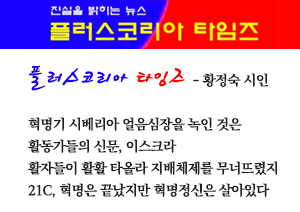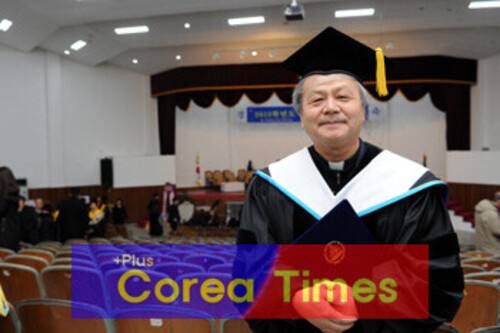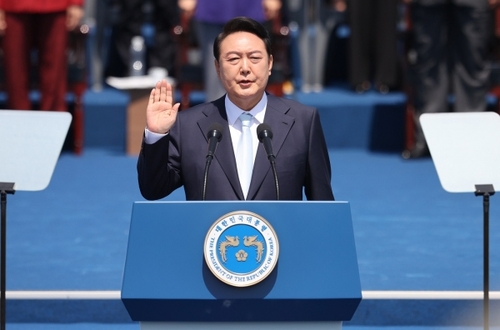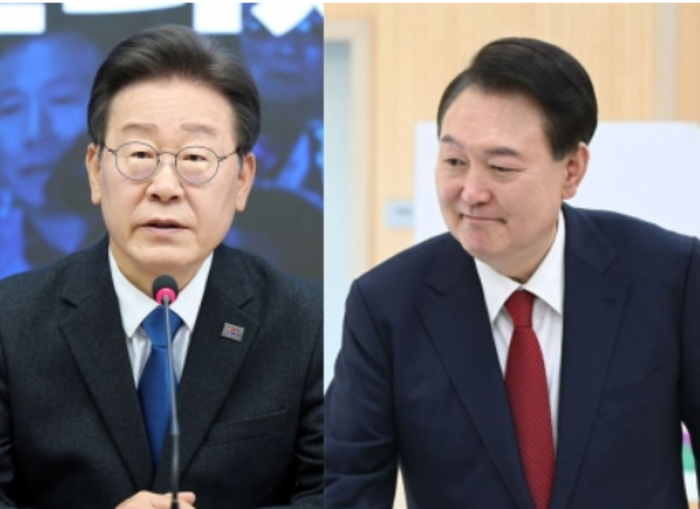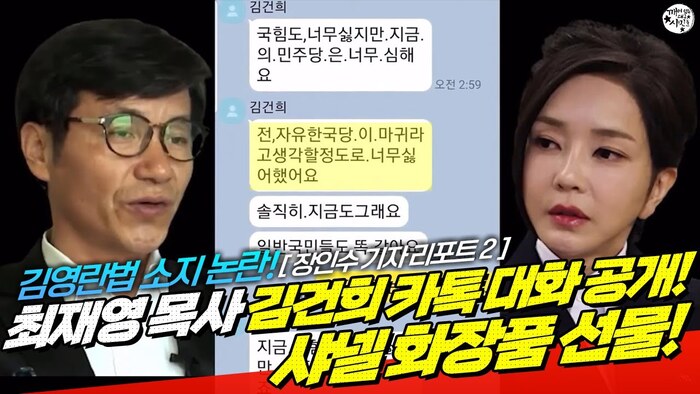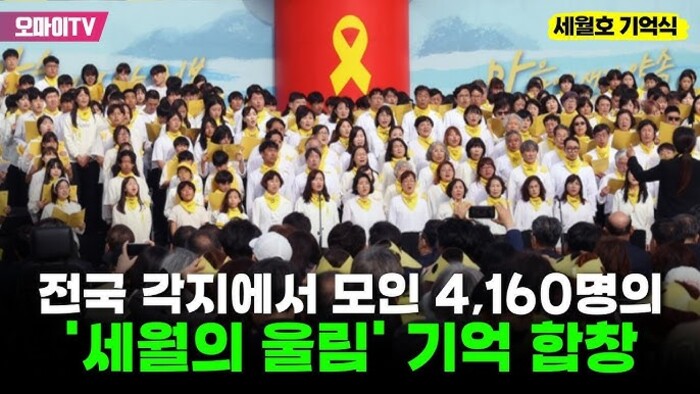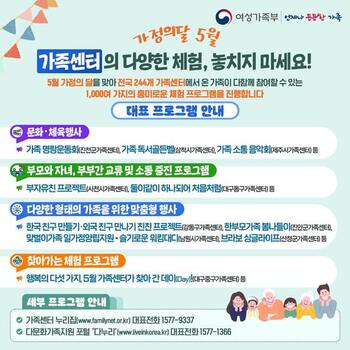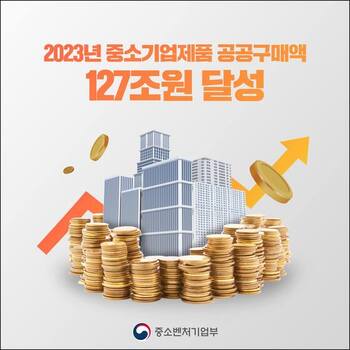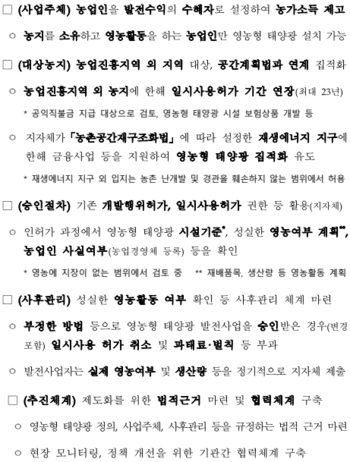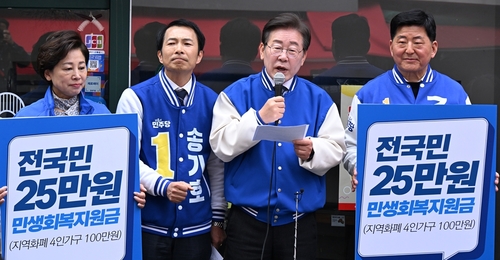|
[21세기 세계 주도의 핵심사상으로 일컬어지고 있는 홍익인간 사상에 관하여, 우리나라가 이제 지향해야 할 새로운 홍익인간 사상의 현대화 적용이론을 개발하여 제시하고자 한다. 본 내용은 임기추박사의 저서 “홍익인간 사상의 현대화 적용이론”(2022)을 60여회로 나누어 연재한다. 편집자 주]
4) 홍익사회의 구현목표 및 추진전략
홍익사회의 분석틀 설정
공공리더십의 구성요소를 적용한 홍익사회의 분석틀에 대해 보면, 김호정(2017)은 “공공부문 리더십의 구성요소를 목표설정, 초점, 방법의 3가지로 제시”하였으며, 그리고 윤종설(2020)은 “6개의 공공리더십 유형별로 상이한 하위 요소로 구성된 분석틀을 도출”하였다. 일부 사례를 들자면, “변혁적 리더십의 구성요소는 비전 제시・영감 및 동기부여・지적 자극・맞춤형 배려,” “협력적 리더십의 경우에는 자원 확보 및 공유・이해관계자 설득・수평적 신뢰 구축” 등의 요소로 제시하고 있다.
본고에서는 윤종설(2020)이 제기한 ‘국내 연구의 독창성 부족, 해외 개발의 리더십이론 의존, 다양한 방법론의 제시’ 사례를 고려해서, 홍익사회의 구현관련 분석틀을 설정하고자 한다. 홍익인간 사상의 정치이념 측면에서 성통・공완의 충족에 의한 도덕적 책임감의 자각을 통하여 바른 논의와 공정한 결정, 법적 준수 및 규범 준수 등 재세이화의 실천에 의한 국민 모두의 ‘홍익(모두 이익)’ 추구로, 각자의 몫에 비례하는 고른 배분과 행복의 기여 지향 및 치우침이나 차별이 없이 살아갈 수 있는 현대 적용상의 분석틀을 설정할 수 있다.
이러한 분석틀을 활용해 현재의 사치적 불공정, 사회갈등 등의 문제를 해결해볼 수 있는 홍익사회의 구현방향을 강구하고자 한다. 본고에서는 김호정의 3가지 리더십 구성요소 제시사례를 참조해, 홍익사회의 분석틀 상에서 목표설정은 구현목표, 초점은 상대관계와 실행역량, 방법은 추진전략 상의 홍익인간 관점 및 가치 지향과 법령・제도 준수 등 재세이화 실천측면 등과 같은 구성요소로 설정하고자 한다.
홍익사회의 구현여건 및 선결과제
홍익인간 사상의 현대 적용에 의한 홍익사회 구현방향을 강구함에 있어서, 무엇보다도 국익 우선추구의원칙 하에 개인 이익은 물론 공적 상생・공익을 넘어, 도덕적 책임감(김광린, 2015)으로 각각의 몫에 비례하는 고른 배분과 행복의 기여를 지향하고(정영훈, 2013), 독식・치우침・배제와 차별・피해를 없애도록(신용하, 2019) 구현여건의 확보가 중요하다. 각 개인은 물론 각 가정・각계・각층・각 지역・각 국가 등의 구성원 전체에 대해 모두 이익을 추구・공유할 수 있도록 구현여건의 기반 조성과 선결요건의 확인이 필요하다.
현재 우리가 ‘30-50클럽’ 회원국의 경제력으로 생활수준 향상에도 불구하고, 사회적 갈등과 고립 심화 및 저신뢰와 낮은 삶의 질이라는 한계점을 안고 있다. 또한 사회적 갈등이 지속적으로 심화되고 있으며 특히 세대간・성별간 갈등이 높아지고 있다. 사회적 관계의 악화로 사회적 지원을 받을 수 있는 사람이 없는 고립이 심화되고 또한 서로 신뢰하지 못하는 저신뢰 사회로 변화되었다. 삶의 질이 경제적・물적 생활수준에 비해 낮으며 이를 보여주는 대표적인 예가 높은 자살률이라고 할 수 있다(정상호 외, 2019),
이러한 우리나라의 사회적 여건 하에서 공정성의 제고와 행복도를 증진시켜 누구나 행복한 삶을 추구할 수 있도록 홍익사회의 구현을 위한 실제적 주요분야의 구현목표와 추진전략과 추진과제 도출이 필요하다. 먼저, 홍익사회관련 추진과제에 대한 홍익사회의 구현방향을 강구하기 전에 정책・업무・사업의 사전・집행・사후 및 평가단계에서, 및 김준과 박정환의 연구결과를 참조한 법령・제도 연계의 사전・집행 및 사후 효과・입법영향분석 실시 등이 필요하다. 이와 같은 제반단계에 대한 영향분석 사례를 참고해 홍익인간 관점과 재세이화의 실천측면을 충분히 적용할 수 있는 홍익사회 구현관련 사전・집행・사후・평가와 관련한 실행역량을 확충하는 것이 중요할 것이다.
다음으로, 홍익사회의 구현에 있어서 선행연구(임기추, 2021) 언급과 같이, “당사자나 이해관계자 간의 상대관계 속에서 올바른 논의와 공정한 결정으로 모든 사람에게 이로운 구현 및 시행들이 가능할 수 있도록, 성통・공완의 수행과 재세이화의 실천, 특히 도덕적 책임감의 자각과 실천 등 선결요건에 대한 충족여부의 확인이 선행되어야 할 것”이다.
성통・공완 수행과 재세이화의 실천관련 선결요건의 충족여부에 대한선문답과 사회과학적 설문조사 방법 등을 통한 확인이 가능할 것이다. 일상생활 속에서 성통・공완의 일시・종일 지속여부와, 사적 생활 속의 변화 및 공적 생활 속의 변화여부를 확인하게 된다. 특히 법령・제도 결정권자 대상 도덕적 책임감의 자각과 실천여부 및 변화여부 등의 의식이나 행동 변화가 되었는지에 관하여, 일반시민에 대한 의식・행동이나 국가・지구촌적 사명 인식의 변화여부에 관해 확인하는 것이다.
이러한 홍익사회 구현의 실행역량 확보 등의 구현여건 하에서 홍익인간 사상의 현대 적용에 의한 홍익사회의 기본방향, 홍익사회 구현목표 및 추진전략을 강구함이 바람직할 것이다. 실제적 적용에 있어서 홍익인간 사상에 대한 현대적 적용의 홍익사회 구현을 위한 도덕적 책임감으로 각각의 몫에 비례하는 고른 배분과 행복의 기여를 추구하되 치우침・배제와 차별・피해가 없이 실천하는 결정・집행주체기관의 역할이 매우 중요할 것으로 생각한다.
홍익사회의 구현 기본방향 설정
홍익인간 사상의 현대적 적용에 의한 홍익사회의 기본방향, 홍익사회 구현목표 및 추진전략은 홍익사회 구현에 부합하도록 제시하고자 한다. 결정・집행주체기관에서 홍익인간 사상의 홍익사회 구현을 위한 사안별로 개인・집단이나 인적 속성, 영역 차원 등 상대관계에서 각자의 몫에 비례하는 고른 배분과 행복의 기여로 치우침・배제와 차별・피해가 없도록, 홍익인간 관점의 강구 및 재세이화 실천측면의 구현이나 유지대책관련 기본방향을 설정할 수 있다.
구체적으로 제시해 보자면, 입법을 포함한 결정주체기관인 국회에서는 대통령을 위시해 여당도 야당도, 정부부처 등과 함께 국익 우선추구 원칙 하에 홍익사회 구현을 위한 법령・제도의 결정권자들이라면, 개인을 비롯해 가정・사회・지역・국가 등 홍익인간의 다각적 상대관계에서 모두 이익이 되도록 적용할 수 있다는 의미이고, 필요시 법령・제도적 개정・제정을 통한 보완 등의 강구가 필요함을 의미한다. 국회와 개인・가정・기업・사회・지역・민족・인종・인류・국가 등의 홍익인간 관점과 재세이화 실천측면의 강구와 결정(입법)을 강구해야 할 것이다. 국회 또는 정당 등 입법 결정권자의 경우, 홍익사회 구현을 위하여 도덕적 책임감의 자각과 실천 아래, 법령의 통과 등의 결정을 통해 개인・집단, 인적 속성, 영역 차원 등의 상대관계 속에서 각각의 몫에 비례하는 고른 배분과 행복의 기여를 지향하고 차별이 없이 모두 이익이 추구할 수 있도록 기본방향 설정이 필요하다는 의미이다. 법률 시행령이나 규정 등을 결정하는 해당 정부부처는 이 부처 저 부처 등과 함께 국익 우선추구 원칙 하에, 부처와 개인・가정・기업・사회(지역 포함)・민족・인종・인류・국가 등에 대한 홍익인간 관점과 재세이화 실천측면의 기본방향 설정이 필요하다.
다음 집행주체기관의 경우 보건복지부 등의 정부부처는 관계 부처와 함께 국익 우선추구 원칙 하에 홍익사회의 구현목표로, 관계 정부부처와 개인・가정・기업・단체・사회・지역・민족・인종・인류・국가 등 홍익인간 관점의 강구와 재세이화의 실천측면 구현 및 추진대책에 관련한 기본방향을 강구해야 한다. 지방자치단체, 공공기관과 기타 기관에서도 마찬가지로 개인・가정・기업・사회(지역 포함)・민족・인종・인류・국가 등에 대한 홍익사회 구현을 목표로 기본방향을 설정하는 것이 필요할 것이다. 결정주체기관에서는 홍익사회 구현을 위하여 도덕적 책임감의 자각과 실천을 통해 사전적 단계에서 대책 강구와 집행 및 마지막 평가과정에 이르기까지, 각각의 몫에 비례하는 고른 배분과 행복의 기여를 추구하여 어떠한 차별이 없이 홍익인간 사상의 실제 적용관련 기본방향 설정이 필요함을 강조한다.
현재 우리나라에서 심각한 사회적 불공정과 양극화 및 사회갈등 등과 같은 여러가지의 내부 현안문제를 해결하고, 우리 국민의 행복지수 상향으로 호전시킬 수 있도록 개인・사회・민족・국가 등의 홍익인간 관점 및 경제・비경제적 가치 중심적 홍익사회 적용원칙 시현이 절실한 시점이다. 또한 부패인식지수의 상향은 물론 자살율의 증가가 억제되고, 삶의 질적인 향상 등에 부합되고 기여가 가능한 홍익사회 구현을 위한 기본방향의 설정 강구도 시급하다고 할 수 있다.
국내적 여건과 관련해 홍익사회의 구현 목표라면 고소득자가 괜찮고 저소득자도 좋고, 고연령 국민이 괜찮고 저연령 국민도 좋고, 수도권 국민이 괜찮고 지방 국민도 좋고, 정규직 국민이 괜찮고 비정규직 국민도 살맛이 나고 모두 이익이 되도록 강구하여야 할 것이다. 그리고 건강한 사람이 괜찮고 아픈 사람도 좋고, 고학력자가 괜찮고 저학력자도 좋고, 집이 있는 사람이 괜찮고 집이 없는 사람도 좋고, 부촌에 사는 사람이 괜찮고 빈촌에 사는 사람도 살맛이 나고, 비장애인이 괜찮고 장애인도 좋고, 남성이 살기 좋고 여성도 살기 좋고 모두 이익이 되는 행복한 삶이 추구될 수 있도록 결정원칙이 적용되어야 할 것이다. 이는 주요한 홍익사회 사안별로 달라질 수 있으며, 국회를 비롯한 정부부처나 지방자치단체 또는 공공기관별 실행여건에 부합될 수 있는 기본방향을 설정하여야 할 것이다.
홍익사회의 구현목표
본고에서는 홍익인간 사상의 현대적용에 의한 홍익사회 구현을 위하여, 앞서 제시한 홍익사회의 분석틀에 의거해 어느 개인이나 집단 구성원 누구든지 각각의 몫에 비례하는 고른 배분과 행복의 기여로 승자 독식・치우침・배제나 차별 및 피해가 없도록, 홍익인간의 관점과 재세이화 실천 측면에서 홍익사회의 구현목표 및 추진전략 포함범위를 강구해 볼 수 있다.
현재 여건에서 사회영역에 대한 개선대안(임성근 외, 2019)으로 1) 창의성 보장과 실패가 두렵지 않은 사회의 혁신, 기회평등・계층 사다리 복원의 혁신, 좋은 일자리 확산의 혁신 등 전체 국민 삶의 개선 및 제고의 추진, 2) 주거비・교육비・의료비 부담 완화 등 저비용 사회 실현의 추진, 3) 정년연장 등 고령 노동자 소득보장 강화, 치매・만성질환 등 취약 노인에 대한 의료지원 강화, 예방적 건강증진 사업수행 등 고령층 안정적 생활지원 강화의 추진 등의 과제가 제시되고 있다.
또한 4) 아동에 대한 돌봄의 강화, 젠더의식 교육 및 강화, 여성의 안전 사회 건설의 여성・아동이 행복하고 안전한 사회의 추진, 5) 미세먼지, 자연재해(지진・산불・홍수 등) 대응, 각종 사회위험・재난시 국민 삶의 보호 등 환경보호와 안전보장 사회의 추진, 6) 결혼이민자・외국인 노동자 보호, 북한이탈주민과 난민, 성소수자에 대한 인식 개선과 지원 등 소수자 보호 강화의 추진 등과 같은 홍익사회 구현의 추진과제가 제시되고 있다.
이와 같은 사회영역의 개선대안과 관련 홍익인간 관점과 재세이화 실천측면 홍익사회의 구현목표는 도덕적 책임감 하에서 사회적 공정성의 제고와 국민 전체의 행복도 향상이며, 이에 따라 누구나 행복한 삶이 추구될 수 있도록 사회혁신전략을 추구하는 데에 있다. 즉, 국민적 삶의 여건 개선을 비롯해 저비용 사회 실현, 고령층의 생활안정 지원 강화, 여성・아동의 행복・안전 사회, 환경보호와 안전보장 사회의 실현 등 지향 목표를 두어야 할 것이다.
홍익사회의 추진전략
홍익사회 구현의 추진전략 강구와 관련해서 첫째, 최근 국가모델의 운영상황과 개선점에 관해 선행연구의 자료를 활용하여 시도할 수 있다(임성근 외, 2019). 홍익인간 사상의 홍익사회 적용에 의한 홍익인간 관점과 재세이화 실천측면에서 적용할 수 있는 현재 사안별 추진현황과 문제점 및 개선과제 등에 대한 파악이 필요하다. 좀더 예를 제시해 보자면, 1) 생애주기별 대응 차원의 돌봄・배움・일자리・쉼・노후와 관련한 기반의 정책 강화 등과 같은 홍익인간 관점 및 가치 지향의 추진과, 2) 생활기반 측면으로 소득, 건강, 주거・지역 및 안전・환경관련 정책 시행 등 홍익인간의 관점 및 가치 중심의 추진 등에 대한 홍익사회의 구현목표 달성을 위해서 홍익인간의 관점과 재세이화의 실천측면 추진전략 대안을 강구하기 위한 것이다.
둘째, 홍익인간 관점 및 가치 지향점은 법령・제도 결정권자는 도덕적 책임감의 자각과 실천으로 홍익인간 관점 및 가치를 지향할 수 있도록 국정운영 실행역량을 발휘해야 한다. 법령・제도적 결정권자가 홍익사회 구현관련 당사자・관계자 간에 보원(보편성), 효원(성실성) 및 택원(협력성) 등 3원만 원리(조한석, 2019; 김철수, 2015)에 입각한 정보공유・협의・조정체계의 구축과, 각각의 몫에 비례하는 고른 배분과 행복의 기여(정영훈, 2013)를 추구하고 치우침・배제나 차별・피해가 없도록 법령・제도와 연계 분석을 포함한 사전・집행・사후・평가과정을 통해, 개인・집단 범주는 물론 인적 속성과 영역 구분 및 결정・집행주체기관 등의 상대관계에서 경제・비경제적 이익・편익 및 가치의 정량・정성적인 산출결과에 기초한 홍익사회 구현의 실행역량을 발휘해야 할 것이다.
셋째, 법령・제도 결정권자는 누구나 이익이 추구되도록 재세이화 측면에서 연계된 분석과 법제 등의 준수 및 보완해 추진하여야 한다. 재세이화 측면에서는 홍익사회 구현시 법령・제도적 결정권자가 당사자・관계자 간에 도덕적 책임감으로, 홍익사회의 제반과정에서 법령・제도 연계의 효과・입법영향분석 실시와, 법령・정책과 제도의 준수・시행(제정・개정・보완내용 포함) 및 사회규범・사회관습 등의 준수와 개인수신 등의 측면에서 법령・제도경쟁력이 향상(기획재정부, 2019)되는 개선수단을 강구하여야 할 것이다. 또한 홍익사회 구현관련 추진과제 대상 사안의 능률성・효과성・책임성 확보를 위해 업무평가제도(국무조정실, 2019) 보완을 포함한 활용대책을 연계해야 할 것이다.
그리고 홍익사회의 분석틀 상의 리더십 초점은 앞에 언급한 홍익인간 사상의 현대 적용에 의한 홍익인간 관점 및 가치의 지향점을 다양한 범주별 상대관계와 실행역량의 뒷받침에 기초해서, 각자의 몫에 비례하는 고른 배분과 행복의 기여 추구 및 치우침이나 차별이 없도록 홍익사회 구현상의 중점을 두어야 한다. 그러므로 법령・제도와의 연계 영향분석을 포함한 홍익사회의 제반과정을 통해 각자의 몫에 비례하는 고른 배분과 행복의 기여로 치우침・차별이 없이 개인・집단 차원을 비롯한 인적 속성 등 다양한 상대관계 반영을 매우 중요시해야 한다. 또한 법령・제도 결정권자가 도덕적 책임감의 자각과 실천으로 다양한 상대관계에서 경제적・비경제적인 이익 및 가치 등의 정량적・정성적인 산출결과에 따라 각자의 몫에 비례하는 고른 배분과 행복의 기여 지향 및 치우침이나 차별 등이 없도록 홍익사회 실행역량의 발휘가 뒷받침돼야 한다.
이와 같이 법령・제도 결정권자가 성통・공완수행과 재세이화의 실천 확보라는 전제 하에 도덕적 책임감의 자각과 실천으로 홍익사회의 추진전략을 사안관련 당사자・관계자 간에서 각각의 몫에 비례하는 고른 배분과 행복의 기여로 어떠한 차별이 없이 시행한다면, 홍익인간 사상의 현대 적용에 의한 기여점, 즉 홍익사회의 구현목표 달성가능성을 높이게 될 것이다. 예를 들자면 고소득자이든 저소득자이든지, 고연령 국민이든 저연령 국민이든, 정규직 국민이든 비정규직 국민이든지, 건강한 사람이든 아픈 사람이든지, 집이 있는 사람이든 집이 없는 사람이든지, 남성이든 여성이든지 각자의 몫에 비례하는 고른 배분과 행복의 기여를 지향하되 어떠한 차별이 없이 시행한다면, 모두 이익이 구현될 수 있는 사회적 공정성의 제고와 누구나 행복한 행복도 향상 등의 기대효과를 거둘 수 있을 것으로 예상한다.
이번 본고에서는 최근 국가모델의 추진상황에 대응한 구현목표 및 추진전략 강구와 관련 홍익인간 사상의 현대 적용에 의한 의미있는 시사점 분석이 미흡한 한계가 있다. 덧붙여 말하자면, 앞으로 법령・제도적 결정권자가 우리 사회 내의 공정성 제고를 비롯해 양극화 등 사회갈등의 해소, 삶의 질적 향상, 행복감의 상승, 특히 자살률의 예방적 해소 등의 기대효과 제고를 달성할 수 있도록 정책의 실행인프라・체계 구축, 실행역량 형성, 실행지침 마련과 홍익사회 구현의 실효성을 높이기 위한 연구 등이 요청된다.
*필자/임기추 박사
홍익경영전략원 원장/유튜브 홍익나라(https://www.youtube.com/channel/UCp77kpD3e2PDSg6OHI8LJTw) 운영자(tranlim@hanmail.net).
*아래 영문은 위 기사를 '구글 번역'으로 번역한 [기사전문]입니다. 영문 번역에 오류가 포함되어 있을 수 있음을 전제로 합니다. *The English below is the [full text] of the article translated by 'Google Translate'. It is assumed that the English translation may contain errors.
[Regarding Hongik Ingan Ideology, which is said to be the core ideology leading the world in the 21st century, I would like to develop and present a theory of modernization application of the new Hongik Ingan ideology that Korea should now pursue. This article is a series of 60 episodes of Dr. Lim Ki-chu’s book “Modernization Theory of Hongik Ingan Ideology” (2022, Kyobo Purple). Editor's Note]
[Modernization Theory of Hongik Ingan Ideology -47] Implementation Goals and Promotion Strategies of the Hongik Society
4) Implementation goals and promotion strategies of the Hongik Society
Establishment of analysis framework for Hongik Society
Regarding the analysis framework of Hongik Society to which the components of public leadership are applied, Kim Ho-jeong (2017) “suggests three components of public sector leadership: goal setting, focus, and method”, and Yoon Jong-seol (2020) “ An analysis framework consisting of different sub-elements was derived for each of the six public leadership types”. To give some examples, “The components of transformational leadership are vision presentation, inspiration and motivation, intellectual stimulation, and customized consideration,” “in the case of collaborative leadership, securing and sharing resources, persuading stakeholders, and building horizontal trust,” etc. is presented as an element of analysis framework.
In this paper, considering the case of 'lack of originality in domestic research, dependence on leadership theory in overseas development, and presentation of various methodologies' raised by Jong-seol Yoon (2020), we try to establish an analytical framework related to the realization of Hongik society. In terms of the political ideology of Hongik Ingan, through the awareness of moral responsibility through the fulfillment of Seongtong Gongwan, the practice of Jaeseihwa, such as right discussions and fair decisions, compliance with laws and norms, etc. It is possible to set up an analytical framework for modern application in which people can live without bias or discrimination by pursuing 'Hongik (profit for all)' for all citizens.
Using this framework of analysis, we intend to devise a direction for the realization of a Hongik society that can solve problems such as the current extravagant injustice and social conflict. In this paper, referring to Kim Ho-jeong’s case of presentation of three leadership elements, goal setting is implementation goal, focus is relative relationship and execution capability, and method is Hongik Ingan perspective and value orientation in promotion strategy in the analysis frame of Hongik society. It is intended to be set as components such as the practice aspects of Jaeseihwa such as compliance with laws and systems.
Implementation conditions and prerequisites for Hongik society
In seeking a direction for the realization of a Hongik society by modern application of Hongik Ingan ideology, above all, under the principle of pursuing the national interest, personal interests as well as public co-prosperity and public interest are pursued, with moral responsibility (Kim Gwang-rin, 2015). It is important to secure conditions for implementation to aim for even distribution in proportion to share and contribution to happiness (Jeong Young-hoon, 2013), and to eliminate monopoly, bias, exclusion, discrimination, and damage (Shin Yong-ha, 2019). It is necessary to establish the foundation for realization conditions and confirm the prerequisites so that benefits can be pursued and shared not only by each individual but also by all members of each family, all walks of life, all strata, each region, and each country.
Currently, despite the improvement in living standards due to the economic power of the members of the '30-50 Club', we are facing the limits of social conflict, deepening isolation, low trust and low quality of life. In addition, social conflicts are continuously deepening, especially between generations and between genders. Due to the deterioration of social relations, isolation with no one to receive social support has deepened, and it has also changed to a low-trust society in which mutual trust is not possible. The quality of life is low compared to the economic and material standard of living, and a representative example of this is the high suicide rate (Jeong Sang-ho et al., 2019).
Under these social conditions in Korea, it is necessary to derive realization goals, promotion strategies, and promotion tasks for the realization of Hongik society so that anyone can pursue a happy life by enhancing fairness and happiness. First, prior to devising the direction of implementation of Hongik Society for Hongik Society-related promotion tasks, in the pre-, execution, post- and evaluation stages of policies, tasks, and projects, as well as in advance of linking laws and systems by referring to the research results of Joon Kim and Jung-Hwan Park. It is necessary to conduct enforcement, post-effect and legislative impact analysis. By referring to the case of impact analysis on all stages, the Hongik Ingan viewpoint and the practice aspects of Jaeseihwa can be fully applied to expand the implementation capacity related to the implementation of Hongik society in advance, execution, post, and evaluation.
Next, as mentioned in a preceding study on the realization of a Hongik society (Ki-Chu Lim, 2021), “in order to enable implementation and implementation beneficial to everyone through correct discussions and fair decisions in the relative relationship between the parties or stakeholders, ・Confirmation of whether the prerequisites such as the practice of Seongtong Gongwan and the practice of Jaeseihwa, especially the awareness and practice of moral responsibility should be preceded.”
It will be possible to confirm whether or not the prerequisites for the practice of Seongtong Gongwan and Jaeseihwa are met through Zen dialogue and social scientific survey methods. In daily life, it is confirmed whether SeongtongㆍGongwan lasts for a day or a whole day, and whether there is a change in private life or public life. In particular, it is to check whether there has been a change in consciousness or behavior, such as the awareness of moral responsibility for the decision makers of laws and systems, whether it has been practiced or not, and whether there has been a change in the consciousness and behavior of the general public or the perception of the national and global mission.
It would be desirable to devise the basic direction of Hongik society, the goal of Hongik society realization, and the promotion strategy by modern application of Hongik Ingan ideology under the realization conditions such as securing execution capacity for realization of Hongik society. In practical application, as a moral responsibility for the realization of a Hongik society of modern application of Hongik Ingan ideology, we pursue equal distribution and contribution to happiness in proportion to each share, but practice without bias, exclusion, discrimination, or damage. I think the role of decision-making and enforcement bodies is very important.
Establishment of the basic direction for the realization of the Hongik Society
The basic direction of Hongik society by modern application of Hongik Ingan ideology, the goal of realization of Hongik society, and the promotion strategy are to be presented in accordance with the realization of Hongik society. In order to ensure that there is no bias, exclusion, discrimination, or damage in the relationship between individuals, groups, personal attributes, and domains, each case for the realization of Hongik society based on Hongik Ingan ideology in the decision-making and executive body, Hongik Ingan It is possible to set the basic direction related to the implementation or maintenance measures of the perspective and the practice aspect of Jaeseihwa.
To put it in detail, the National Assembly, which is a decision-making body including legislation, together with the president, the ruling party, the opposition party, and government departments, are the decision makers of laws and systems for the realization of a public interest society under the principle of pursuing national interests first. It means that it can be applied to benefit all in the multilateral relationship of Hongik Ingan, such as region and country, and it means that supplementation through legal and institutional revision and enactment is necessary if necessary. The National Assembly and individuals, families, businesses, societies, regions, peoples, races, peoples, nations, etc. Hongik Ingan perspectives and Jaeseihwa practices should be sought and decisions (legislation) should be sought. In the case of legislative decision makers, such as the National Assembly or political parties, through decisions such as passage of laws under the awareness and practice of moral responsibility for the realization of a public welfare society, each share is proportional to each other in the relative relationship such as individuals/groups, personal attributes, and domain levels. This means that it is necessary to set the basic direction so that all interests can be pursued without discrimination, aiming for even distribution and contribution to happiness. Relevant government departments that decide laws, enforcement ordinances, regulations, etc., together with this department and other departments, under the principle of pursuing the national interest first, promote public welfare (including ministries, individuals, families, businesses, societies (including regions), people, race, humanity, and the nation). It is necessary to establish the basic direction of Hongik Ingan's perspective and Jaeseihwa practice.
In the case of the following executive bodies, government departments such as the Ministry of Health and Welfare, together with relevant government departments, pursue the goal of realizing a Hongik society under the principle of pursuing national interests first. ・ It is necessary to devise a Hongik Ingan perspective, such as the state, and to devise a basic direction related to the realization of the practice aspect of Jaeseihwa and promotion measures. Likewise, it will be necessary for local governments, public institutions, and other institutions to set basic directions with the goal of realizing a public interest society for individuals, families, businesses, society (including regions), people, race, humanity, and the nation. In order to realize a Hongik society, the decision-making body pursues equal distribution in proportion to each share and contribution to happiness from the preliminary stage to the devising and executing of countermeasures and the final evaluation process through awareness and practice of moral responsibility to prevent any discrimination. Without this, it is emphasized that it is necessary to set the basic direction related to the actual application of Hongik Ingan ideology.
Goals of Hongik Society
As alternatives for improvement in the social realm under the current conditions (Lim Seong-geun et al., 2019), 1) improvement of the lives of the whole people and 2) Promote the realization of a low-cost society by relieving the burden of housing, education, and medical expenses, 3) Strengthen income security for elderly workers by extending the retirement age, strengthen medical support for vulnerable seniors such as dementia and chronic diseases, and carry out preventive health promotion projects Tasks such as the promotion of strengthening stable living support for the elderly are presented.
4) Reinforcement of care for children, education and reinforcement of gender awareness, promotion of a society where women and children are happy and safe through the construction of a safe society for women, 5) response to fine dust and natural disasters (earthquakes, forest fires, floods, etc.), Promotion of environmental protection and security guarantee society, such as protection of people’s lives in case of various social risks and disasters, promotion of strengthening minority protection, such as protection of married immigrants and foreign workers, improvement of awareness and support for North Korean defectors, refugees, and sexual minorities, etc. The promotion task of realizing the same Hongik society is being presented.
Hongik Society promotion strategy
Regarding the development of promotion strategies for realizing a Hongik society, first, it can be attempted by using data from previous studies on the operational status and improvement points of the recent national model (Lim Seong-geun et al., 2019). It is necessary to understand the current progress, problems and improvement tasks for each issue that can be applied from the perspective of Hongik Ingan and the practice of Jaeseihwa by applying Hongik Ingan ideology to Hongik society. To give more examples, 1) Promotion of the Hongik Ingan perspective and value orientation, such as strengthening of policies related to care, learning, job, rest, and old age in response to each life cycle, 2) Life-based aspects Hongik Ingan's point of view and re-taxation in order to achieve the Hongik Society's implementation goals for Hongik Ingan's perspective and value-oriented promotion, such as income, health, housing, regional, safety, and environment-related policies (Jaeeseihwa) is to devise an alternative to the promotion strategy for the aspect of practice.
Second, as for Hongik Ingan perspective and value orientation, law and system decision makers must exercise their capacity to execute state administration so that they can pursue Hongik Ingan perspective and value through awareness and practice of moral responsibility. Information sharing, consultation, and adjustment based on the three-won principle (Cho Han-seok, 2019; Kim Chul-soo, 2015), such as bowon (universality), filial piety (sincerity), and taekwon (collaborative nature) among the parties and related parties related to the realization of the Hongik society by the statutory and institutional decision makers A system must be established. On this basis, through pre-, enforcement, post-, and evaluation processes, including analysis of linkage with laws and systems, to pursue equal distribution and contribution to happiness in proportion to each share (Jeong Young-hoon, 2013), and to ensure that there is no bias, exclusion, discrimination, or damage. , It is necessary to demonstrate the implementation capacity of realizing a Hongik society based on the quantitative and qualitative calculation results of economic and non-economic benefits, benefits and values in the relative relationship between individual and group categories as well as human attributes and domain classification and decision-making and executive bodies.
Third, those who decide the laws and systems should follow and complement the analysis and laws linked in the aspect of Jaeseihwa so that everyone can pursue their interests. In terms of Jaeseihwa, the legal and institutional decision maker in the realization of the Hongik society is moral responsibility among the parties and related parties, and the effect of linking laws and systems in the overall process of the Hongik society, implementation of legislative impact analysis, and compliance with laws, policies and systems ・In terms of implementation (including enactment/revision/supplementation), compliance with social norms/customs, and individual acceptance, improvements in laws and systems should be developed (Ministry of Strategy and Finance, 2019). In addition, in order to secure the efficiency, effectiveness, and accountability of the promotion tasks related to the realization of the Hongik Society, it is necessary to link utilization measures, including supplementation of the work evaluation system (Office of Government Policy Coordination, 2019).
And the focus of leadership in the analysis framework of the Hongik society is based on the Hongik Ingan viewpoint and value orientation by the modern application of the Hongik Ingan ideology mentioned above, based on the support of the relative relationship and execution competency by various categories. However, the focus should be placed on the realization of a Hongik society so that there is no bias or discrimination. Therefore, it is very important to reflect various reciprocal relationships such as individual and group levels and human attributes without bias or discrimination through the overall process of Hongik society, including the analysis of the linkage with laws and systems. In addition, it is necessary to support the exercise of the Hongik Society's execution capacity so that there is no bias or discrimination according to the quantitative and qualitative calculation results such as economic and non-economic benefits and values in various relationships with the awareness and practice of moral responsibility by the statutory and institutional decision makers.
*Writer/Lim Ki-chu
Hongik Institute of Management Strategy, Director/YouTube Hongik Nara(https://www.youtube.com/channel/UCp77kpD3e2PDSg6OHI8LJTw) Channel Operator <저작권자 ⓒ pluskorea 무단전재 및 재배포 금지>
홍익경영전략원 원장・경영학박사, 홍익사상학자 / 유튜브 홍익나라 채널운영자 / 단군정신선양회 학술위원 / 전 에너지경제연구원 연구위원 / 전 행정안전부 시도합동평가단 평가위원 / 전 국무총리 기후변화협약대책위원회 평가위원 / 전 대통령자문 지속가능발전위원회 전문위원 / 전 대통령직속 민주평화통일자문회의 자문위원 / 홍익인간 사상관련 50여권의 저서 및 11편의 학술논문 발표

hongikingan, hongik ingan, jaeseihwa, 홍익인간, 재세이화, 관련기사목록
|
연재
많이 본 기사
|



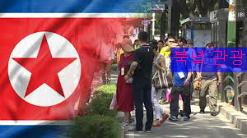

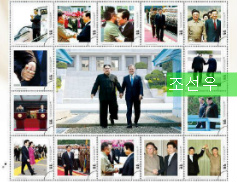
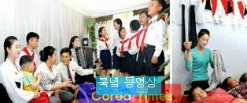

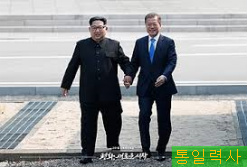







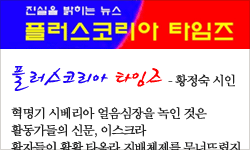


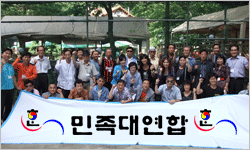
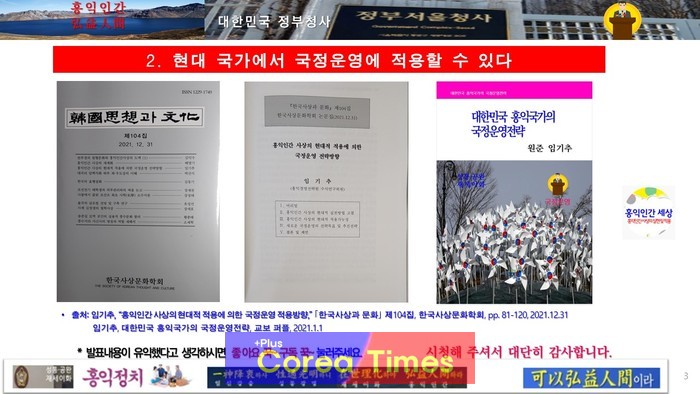






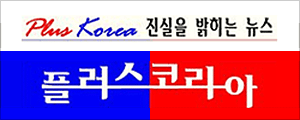




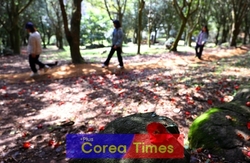
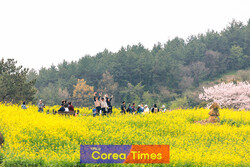



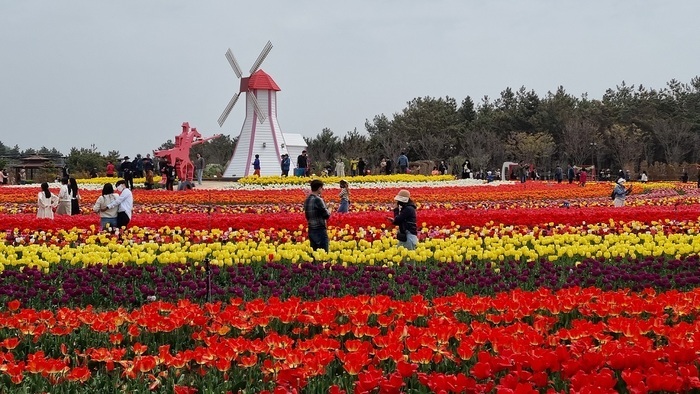



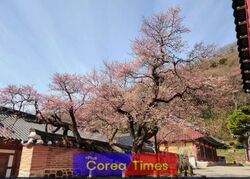

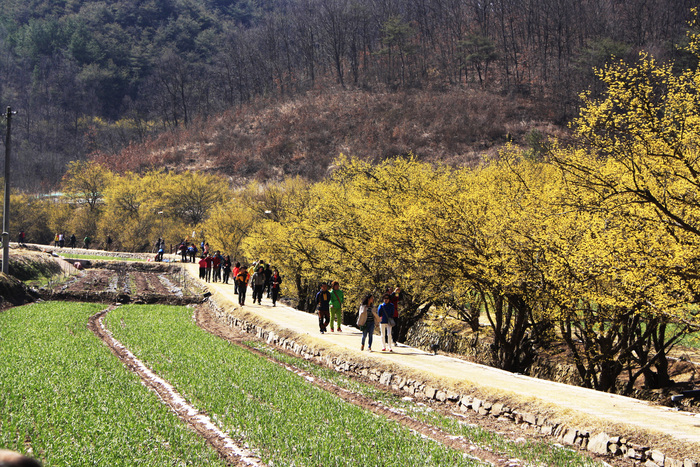
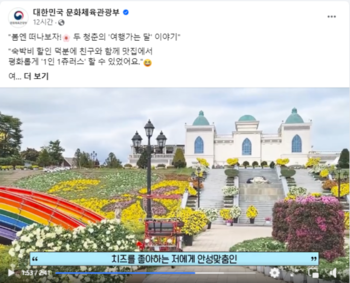

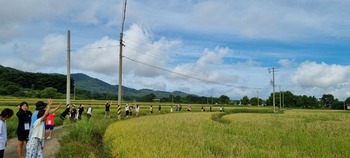
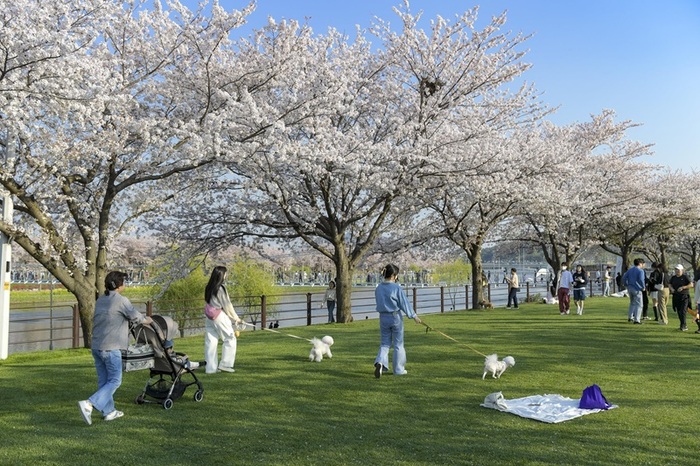


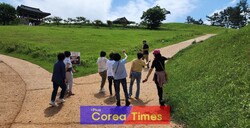
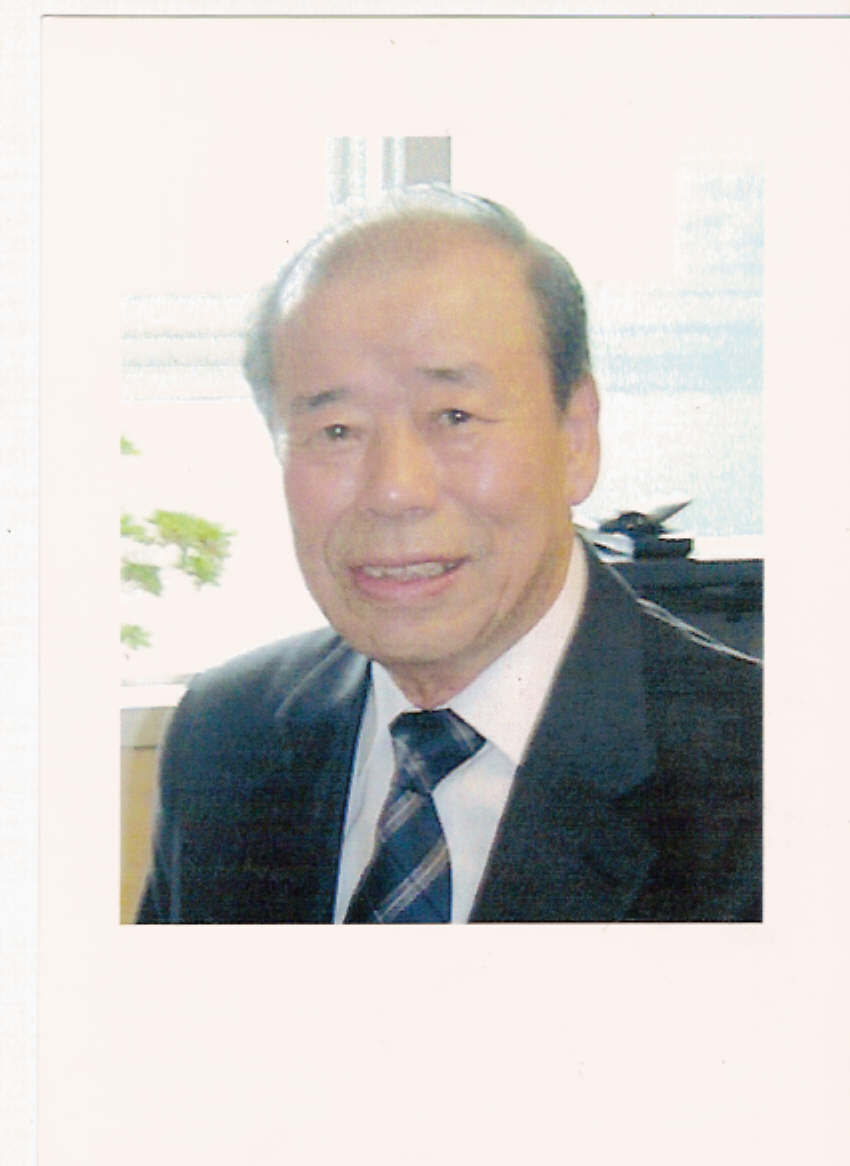
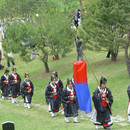


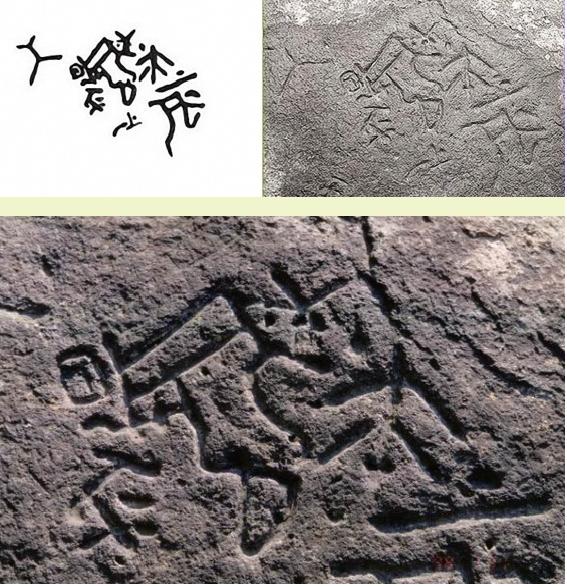
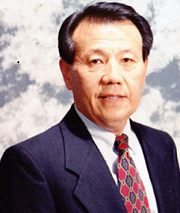

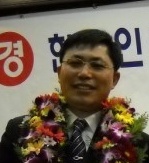
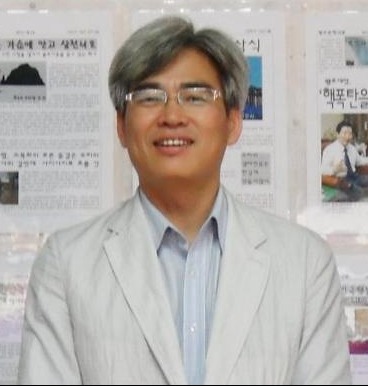
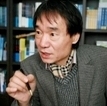
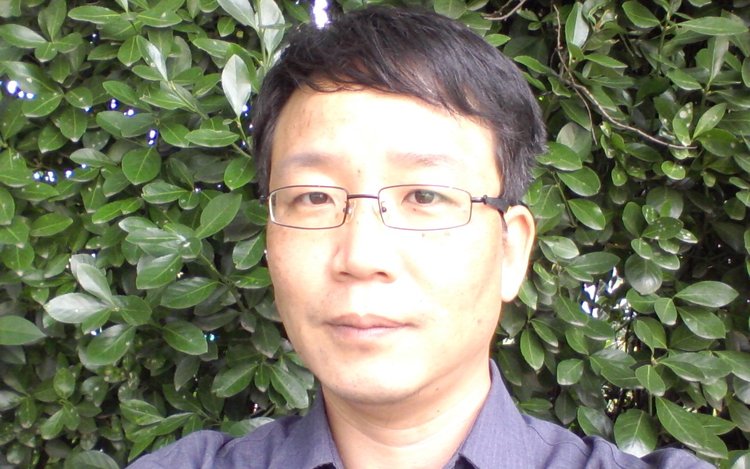
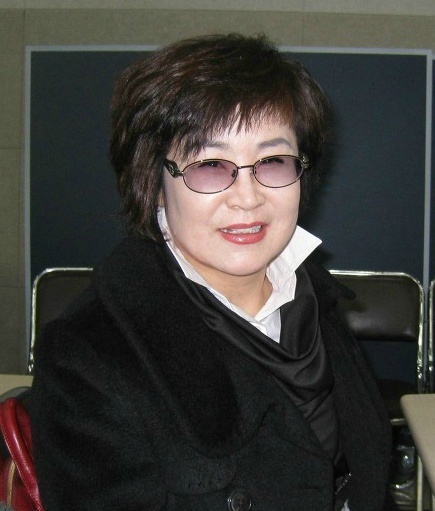

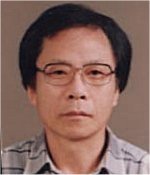
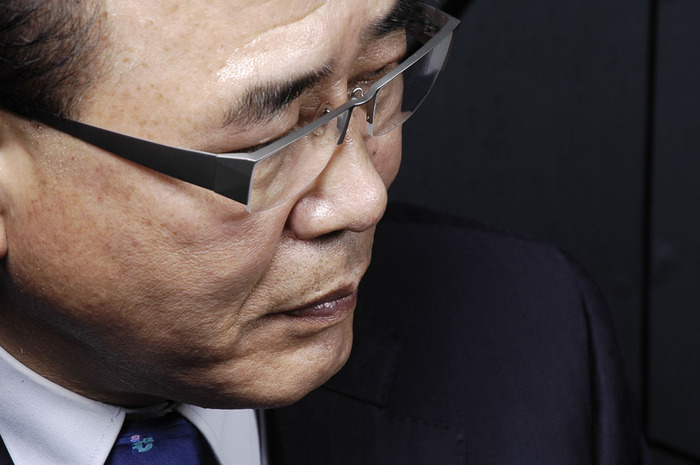
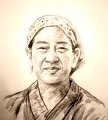

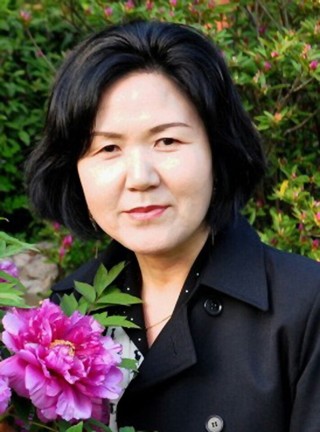



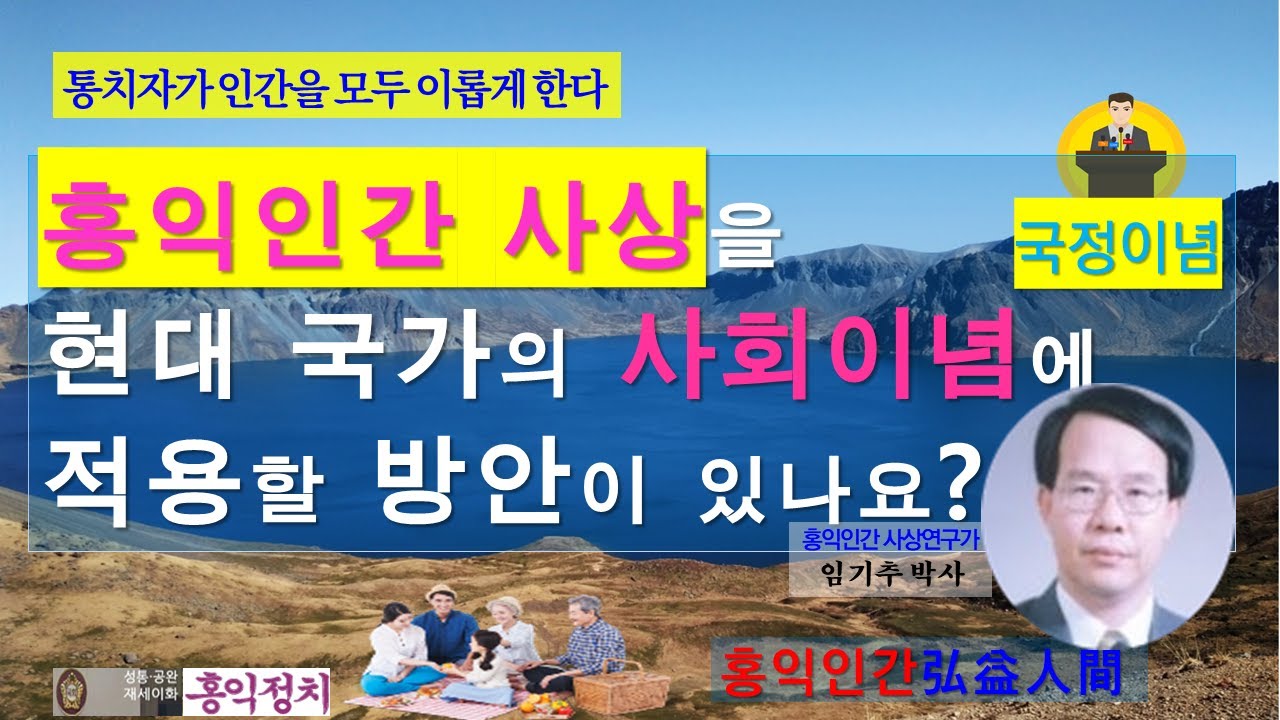

 '잊혀진 계절'누굴위해 존재하는가
'잊혀진 계절'누굴위해 존재하는가
